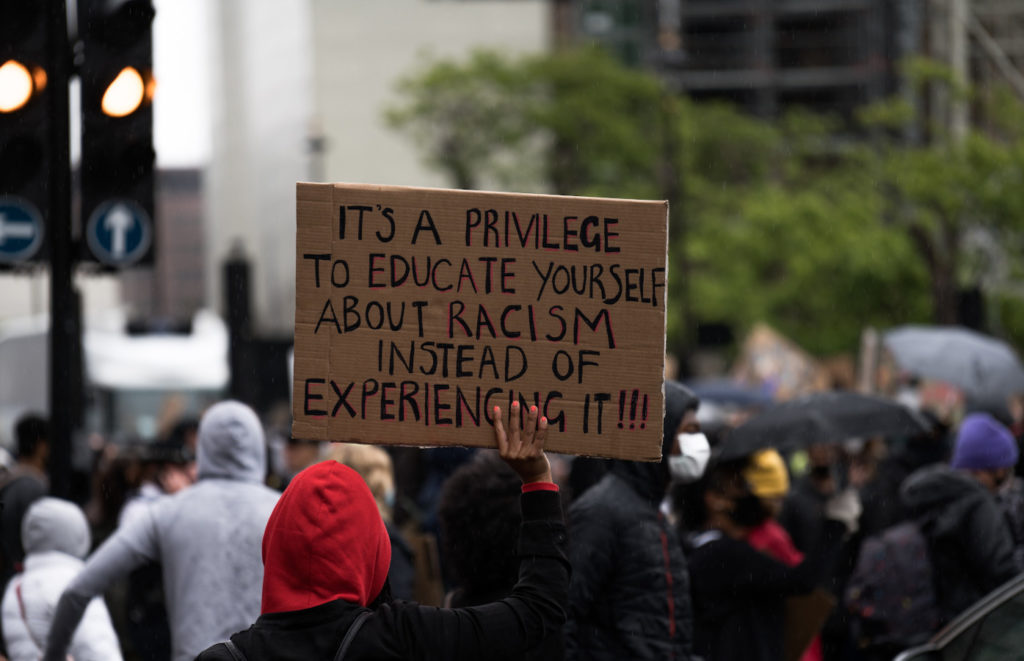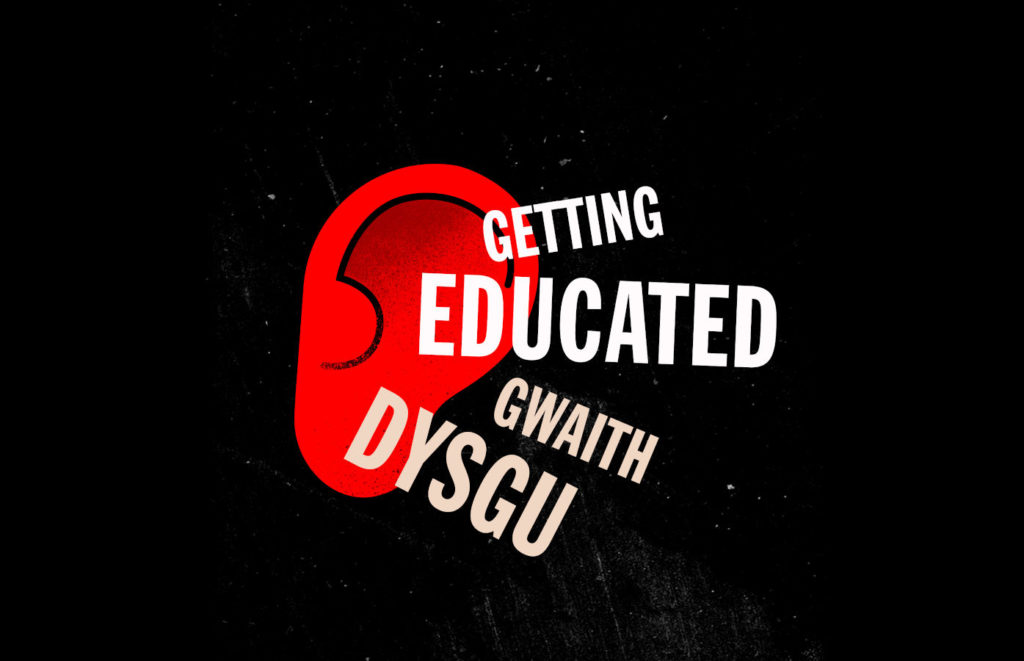Anti-racism: our action plan
This plan lays out the first stages of the actions we’re committed to taking.

In recent months, activists and organisations across the world have worked tirelessly to bring to light the vast amounts of racial disparity, discrimination and violence present in societies on both sides of the Atlantic. This was, in part, prompted by the Black Lives Matter protests following the murder of George Floyd.
From the intense discussion and scrutiny that systemic racism has recently received, a continuous theme has emerged: things cannot continue as they are. Change is overdue.
As an organisation that works to highlight changes needed to mental health systems, it is essential that we should address the effects of racism on wellbeing, and the racial barriers that exist to accessing appropriate mental health support.
To do that, we need to first acknowledge the role that, through ignorance or complacency, we have played in allowing racism to continue to exist in Wales. We need to educate ourselves, we need to listen to those who have been affected, and we need to form partnerships with those who can help us to get this right. And we need to start now.
This plan lays out the first stages of the actions we’re committed to taking; the starting point of our contribution to a more equal Wales.

Getting educated
Lived realities, racial history, and tools for staff
What? Across every section of our organisation, we’re learning more about the reality of lived experiences of racism in Wales and the UK, and Wales’ racial history.
How? Compiling resources for all staff to access, and circulating these. Taking advice from leading organisations about what needs to be in there. Arranging for key speakers to deliver online sessions to all staff. Identifying tools needed to support staff.
Why? We need a reality check: complacency leads to inaction. Knowing the history of racism, and accepting and understanding that it continues today, is the starting point for addressing our own biases.

Getting organised
Policies, training, data – and taking good advice
What? A top-to-bottom review of all our policies. We need to find the barriers that we present, and our processes and training to address inequality and bias need to be spot on. We also need to get the data together to track how we’re doing.
How? Full policy review. Committing to achieving Diverse Cymru’s BME Mental Health Workplace Practice Certification Scheme. Appointing a Recruitment Officer to take charge of fixing our recruitment policies at every level, including board. New systems for collecting data across the organisation. These are just the starting points – there’s more to follow.
Why? We need everything we learn to be part of the fabric of our organisation, and we need to take good advice from people who understand racism better than we do.

Getting connected
Relationships, conversations, and being led by those who experience racism.
What? Building relationships with a wide range of people and communities to give us as many opportunities as possible to learn from them and work together.
How? We’re linking up with Diverse Cymru, particularly around using their cultural competency toolkit. We’ve also signed the Tai Pawb Deeds not Words racial equality pledge. Our projects have already begun reaching out to communities across Wales.
Why? We need to listen to those who have experienced racism; their experiences show a reality that you don’t get from reports and stats. Our actions need to be informed by what they tell us.

Getting it out there
Highlighting mental health effects of racism, and lobbying for change
What? Playing an active role in amplifying the voices of those who have experienced racism, and lobbying to improve services and service provision for people of all ethnicities in Wales, particularly those who have faced barriers because of their race.
How? We’re developing this, but we’ll use any and all channels and platforms we have to make the message clear: racism exists, it’s hugely detrimental to mental health, and there are disproportionate racial and cultural barriers to accessing support. We’ll use our knowledge and findings to lobby for change.
Why? Tackling racism takes all of us. As a mental health organisation, we’ll use our position and knowledge to focus in on how racism affects the work we’re involved in.

